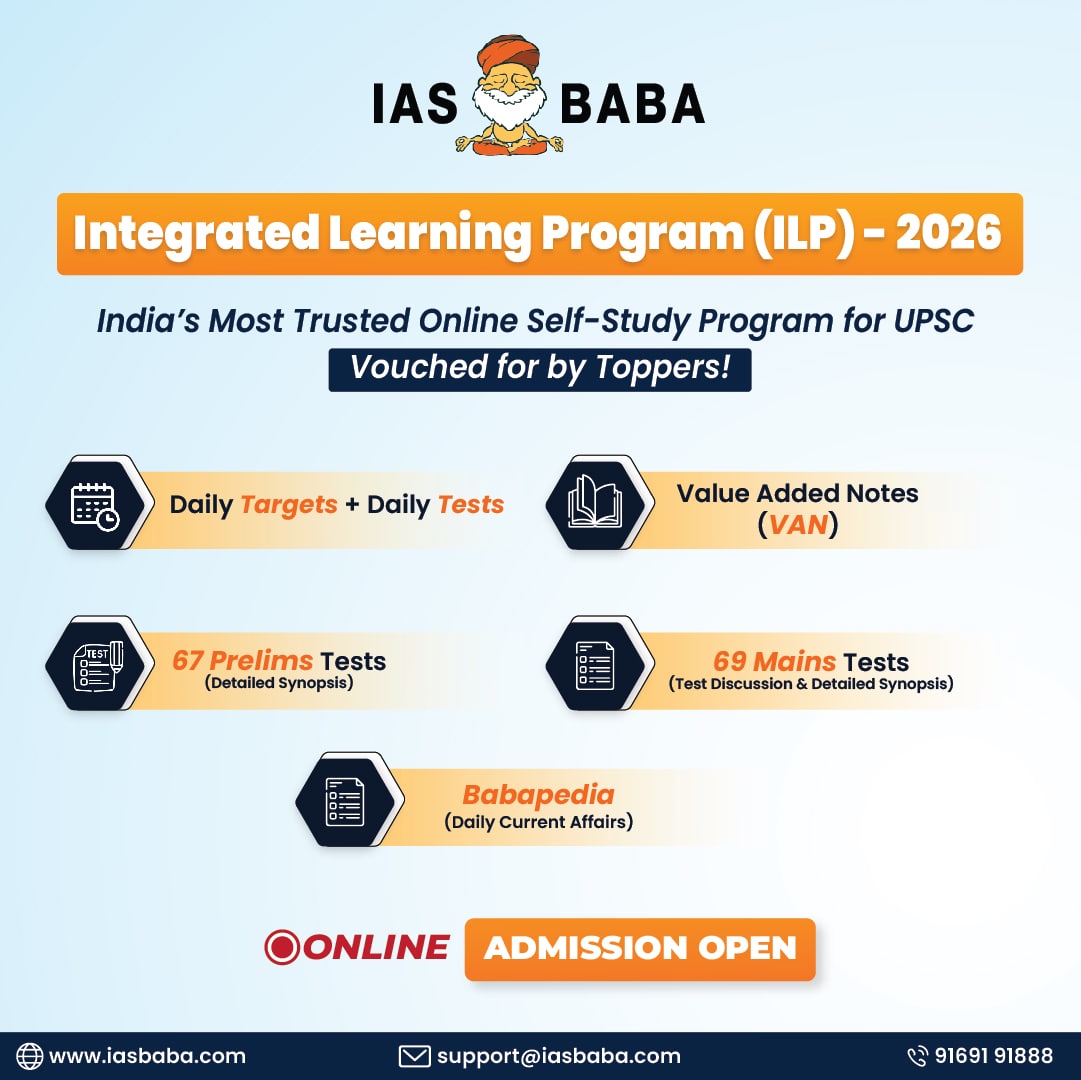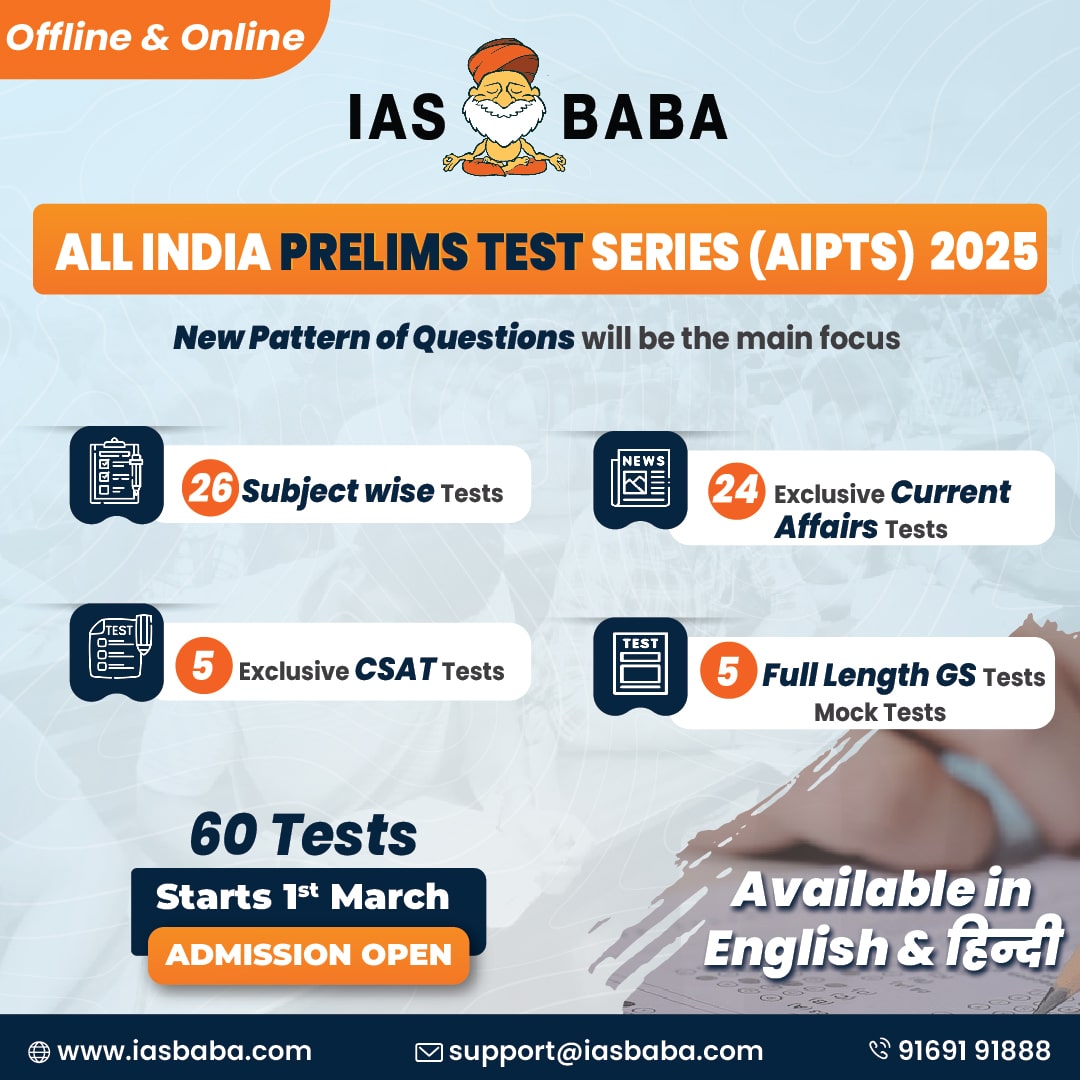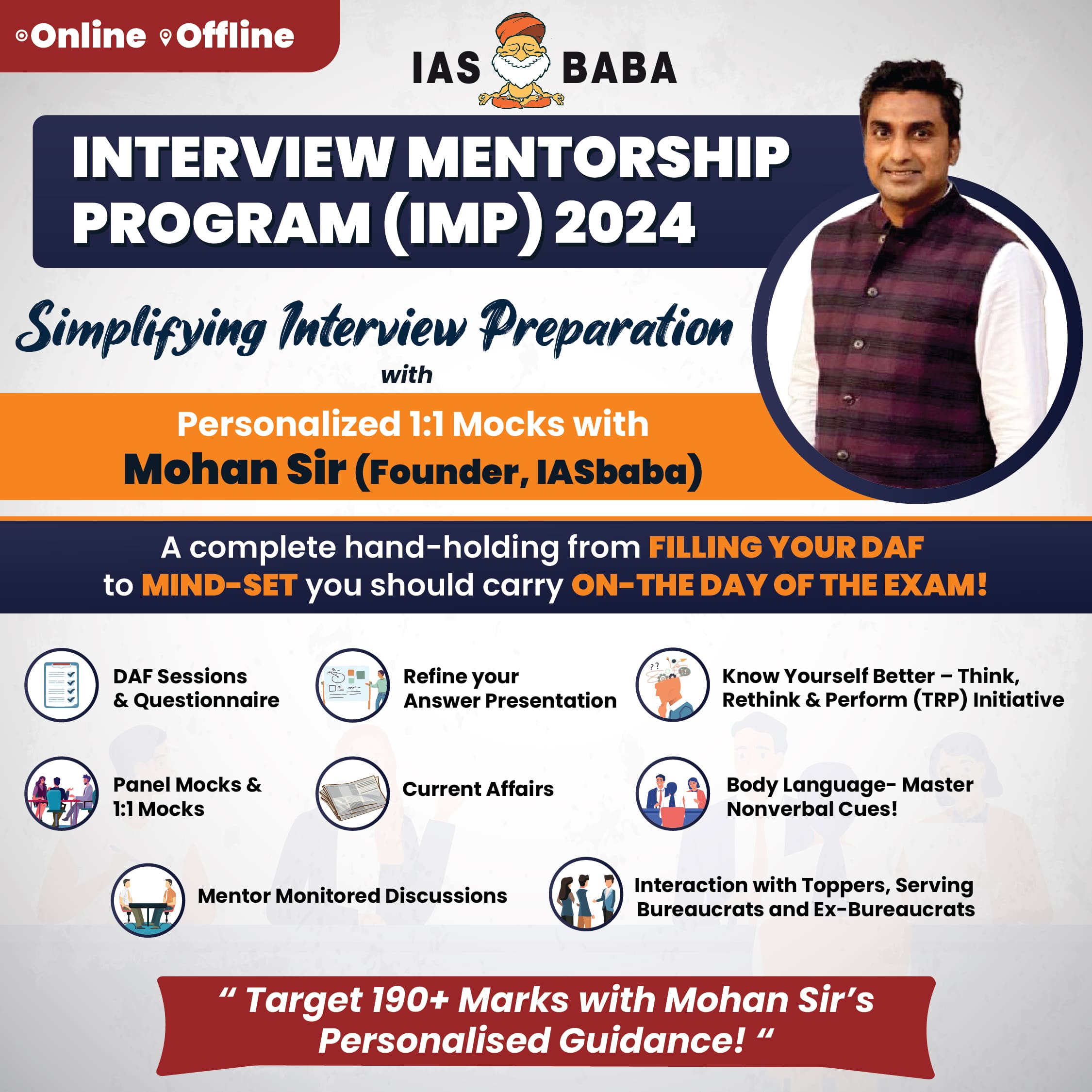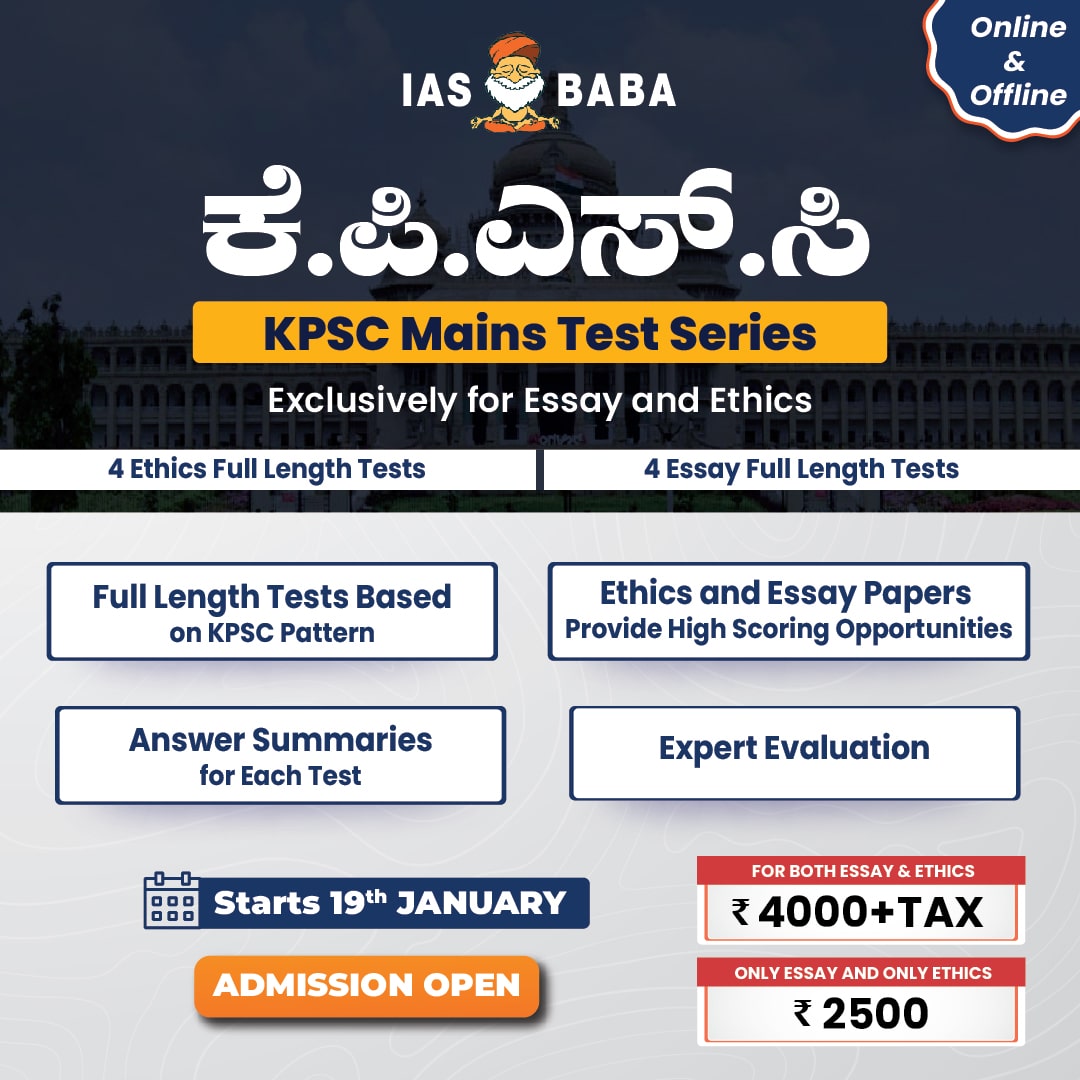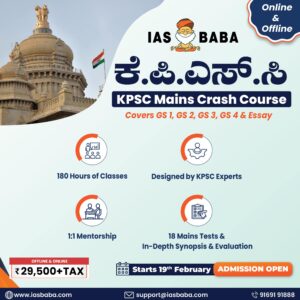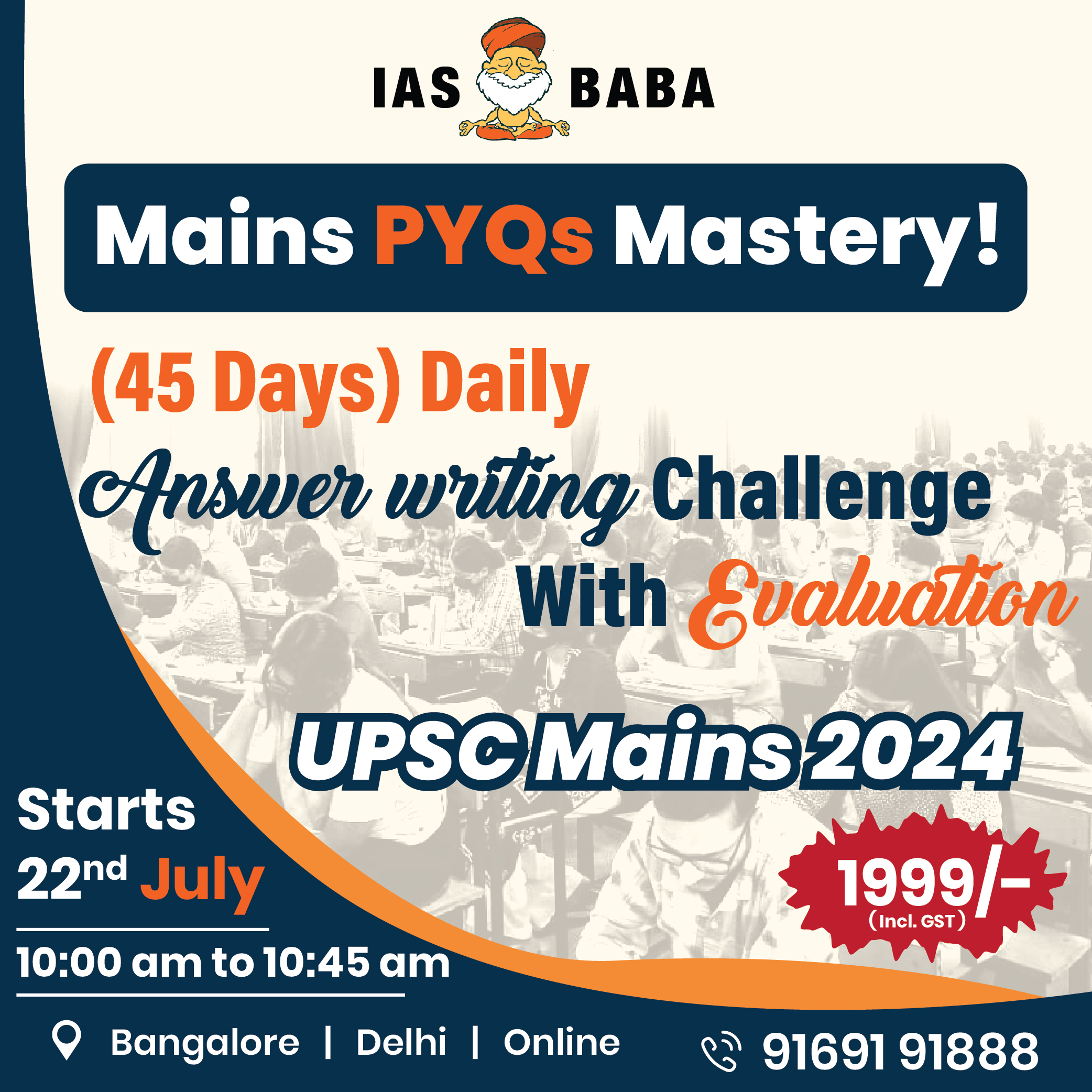IASbaba's Think and Learn-Mains 2015, Mains Examination, Think and Learn-2015, UPSC, UPSC Mains- Think and Learn-2015
Archives-Think and Learn-Mains 2015
Synopsis and Review-Think and Learn [Day 6]
1) “Temperature, salinity and density differences in ocean water are the prime causes of ocean water circulation.” Elaborate. (200 Words, 10 Marks)
This is a fairly simple factual question, where you need to list out the three factors – Temperature, Salinity and Density each, and explain how they cause ocean water circulation.
A brief introduction of what ocean currents are, a few examples of named currents, and a good conclusion would be more than enough.
Today’s Top/Model answer is written by – Chanakya, Even thought the structure could have been cleaner, he is the only one who has included all the points.
Ans) The geographical location ( latitude) will determine the temperature of the ocean. The rising temperature is directly proportional to the salinity. Salinity is also affected by the its connectivity with the fresh water resources. Salinity is inversely proportional to the density.
Equatorial waters are less dense(as having more salinity and temperature) and the polar water are highly dense and highly dense waters tends to move towards low dense waters and the void is filled by these warm waters and dense waters will settle in the bottom.
The convergence of these cold and hot currents are creating a more fertile areas for fishing grounds, as these are creating conditions for wide continental shelves.
Some examples of these are Kuroshio and Oyashio currents of Japan, benguela and north atlantic drift currents etc.
The three factors are creating a balance in the global circulation of Ocean waters
2) A civil servant should be politically neutral, not value neutral. S/he should be committed to the policies of the country, not to the politics of the country. Substantiate. (200 Words, 10 Marks)
This is a GS-2 Question, and not a GS-4 question. So instead of mentioning various ethical theoretical concepts, one should concentrate more on the practical polity concepts. And the directive “substantiate” means to explain this statement, which is true, with some real-life examples.
If it were a GS-2 question, the Top Answer would go to Nishant –
Ans) The prime aim of a civil servant is to serve the diverse needs of the country in an ethical and efficient manner. He is required to be honest and thorough in his work ethics. Towards the poor and uneducated at large, he should be patient, understanding and sensitive to their problems. To a minister, he is accountable but not subservient. This requires him to be politically neutral but not necessarily value neutral.
He is required to make value judgments in his daily routine often drawing from his education, expertise and past experiences. Understanding social needs and their solutions cannot be done objectively like a science problem. For eg depending on specific needs of his/her district, the civil servant can make a value judgment and tweak the scheme to better suit the need of his district. Strict objectivity often makes a civil servant apathetic to the needs of the people which is highly undesirable.
Expert reports suggest Indian Bureaucracy suffers from this twin problem –
1. Political patronage as means to advance one’s career and
2. Objectivity as a defense mechanism to escape greater responsibility and accountability
Therefore, it is imperative to put in a mechanism to allow greater freedom and risk taking by the bureaucracy , freeing them from the political cage and not reducing them into ‘set-in-stone’ rule abiding machines.
If it were a GS-4 question, the Top Answer would go to IWRA –
Ans) Civil services is not a post for individualistic hedonism which seeks private pleasure. Instead this is based on service to the country and in this regards expect high moral standards and values to be possed by civil servants. It is also true that given the nature of system a bureaucrat has to work with politicians to bring the policy decision into action. Political influence is quite possible in this case which might lead to blurring the judgement of civil servants. Hence politicians and bureaucrats need to maintain a healthy relationship.
The bureaucrats have to consider the noble task they have been assigned. They are not working in Plato’s ideal state which ignores individuals and emphasizes state.They work for the welfare of the people and their action should be guided by ideals of utilitarianism.Seeking political patronage goes against the deontological obligation to duty and will only lead to degradation of their personal consciences.
The best course of action in this case is too stay politically neutral but follow the ideals of public services.This require strong values and guiding principles to stay true to one’s duty.
3) Discuss the linkages between organized crime and terrorism and potential threats emanating from such linkages in the Indian and Global context. (200 Words, 10 Marks)
This question is divided into three parts, each discussing one segment – a) Linkages between organized crime and terrorism. b) Threats to India. c) Threats to the World.
So, when one divides the structure into such three parts, it becomes very easy to answer this question, wihin the word limit.
The Top Answer for this Question goes to – Velma, even though she has just given examples under the last two parts, a bit more should have been discussed regarding the potential threats.
Ans) Organized crime and terrorism are the result of ineffective form of governance.Terrorism aims for overthrowing govt ,OC aims for establishing parallel govt and coexistence. Terrorism uses violent means and OC rather prefers non violent forms to achieve its means.
Linkages:
1. OC acts as suppliers of arms& ammunitions,Drugs,Human beings and money to terrorist groups.
2. Colloboration exists at international level between these two.
3. Due to misgovernance, funds reach terrorist group not only money even the essential commodities.
4. The external network organizations in some cases will be carriers of dire funds to terror groups ex Markaz dawa al Arshad to lashkar-e-toiba of kashmir
Indian contexts:
Mumbai Taj hotel bomb,growing terrorism activities in Kashmir , north east state insurgency
Global context:
9/11 WTC attack, Boko haram nigeria ( captivating girls), MOSUL IN IRAQ , ISIS activities in yemen.
Growing such activities has definetely posed threat to security of nation . Diplomatic anti terrorism agreements have to implemented to curb the mence . otherwise UNO ( just like the league of nation) will be a failure with the eruption of 3rd world war .



